Best English Editing and Proofreading Service

The central tendency, mean, median, and mode depict where most data points concentrate, while variability illustrates how far they are. It is exceedingly crucial because the amount of variability demonstrates the generalization one can make from the sample to the population. Low variability is desirable because it implies that predicting information about the population using sample data is well-justified. Contrarily, high variability illustrates decreased consistency, making data predictions harder.
Continue Reading
Finding a dataset's middle or average is critical and involves measuring central tendency. The central tendency's most common measures include the mode, median, and mean. The mode is the most repeated measure in a data set.
Continue Reading
We may define a study variable as an attribute of an object of study. Suppose you wish to establish a sound experimental design. In that case, selecting variables to measure is exceedingly crucial.
Continue Reading
While researching a group of people, collecting data from every person in that group is virtually impossible. To counter this issue, you choose a sample. What is the difference between population and sample? What sampling methods should you use in your dissertation?
Continue Reading
Formal writing can cover everything from academic essays to a thesis or dissertation; a few fundamental rules are valid in all types of academic writing. A student can find writing in different formats boring or unbearable. With the following tips, you will start finding academic writing almost enjoyable and utterly rewarding.
Continue Reading
Anthropomorphism can be defined as attributing human characteristics to nonhuman entities, objects, or concepts. It may lead to ambiguity or misleading communication. Therefore, avoiding anthropomorphism in your thesis, dissertation, or article would be best.
Continue Reading
Research methodology is about the data collection and analysis methods employed in your research. Thus, this section addresses what you performed and how you did it, letting readers assess the reliability and validity of your study and is a critical part of your thesis or dissertation.
Continue Reading
Researchers develop theories to explain phenomena, build connections, and make educated guesses. Therefore, you illustrate the existing ideas supporting your dissertation or thesis in a theoretical framework, depicting that your work has a solid foundation.
Continue Reading
A literature review includes academic sources on a specific topic. It aims to supply up-to-date knowledge, ensuring that you specify relevant theories, methodologies, and deficiencies in the extant research.
Continue Reading
The first chapter of your thesis or dissertation includes the introduction. You should provide the reader with a solid start. Next is staging your research with an apparent focus, objective, and direction.
Continue Reading
An abstract, is an important part of an academic work and a synopsis of a longer study such as a dissertation or thesis. Its most critical aspect is precise reporting of the objectives and outcomes of your research. Thus, the readers can learn about your work by perusing your abstract.
Continue Reading
We may have qualitative, quantitative, and mixed methods in dissertations. This blog will elaborate on quantitative dissertations, qualitative dissertations, and mixed methods dissertations by addressing their similarities and differences.
Continue Reading
The cover letter acts as the first impression that the authors or their work will have on the editor. It can be contemplated as the “sales pitch” of the conducted research and the submitted work. It, therefore, deserves meticulous attention and should never be written half-heartedly. This article discusses how to write a persuasive cover letter for journal submission and presents an easy-to-follow rubric that will help you draft an impeccable cover letter.
Continue Reading
There are several naive job seekers who waste their valuable time and energy designing their resumes instead of writing an eye-catching cover letter. It is too often people looking for a job neglect the importance of a cover letter. This article shows you 10 tips to write a persuasive cover letter for a resume and presents a short guide that will help you draft an impeccable cover letter for a resume.
Continue Reading
Writing a thesis or dissertation is considered the final phase of your Ph.D. journey. You must cover three to five years of study and research into your thesis. A doctoral thesis or dissertation is a long essay of knowledge and research on a specific niche that poses interesting questions and answers with your reasoning. Ph.D. candidates should carefully choose the study topic according to their expertise. This article explains how to write an impeccable Ph.D. thesis for outstanding results in 6 helpful steps.
Continue Reading
Statistical analysis uses quantitative data and explores trends, patterns, and relationships. Thus, it is an indispensable instrument for researchers, states, firms, and many others. This article offers introductory knowledge on statistical analysis for students and researchers. After discussing descriptive and inferential statistics, it covers various research designs.
Continue Reading
A thesis statement is the main academic argument of the thesis that distills the central idea of the study informing the readers about your stance on your thesis topic and is therefore an integral part of writing the thesis. When writing a thesis statement, there are several contentions regarding the right approach. And understandably so, for there are no definite writing rules. But there certainly are writing best practices. In this article, we will look at some of these best practices and how you can leverage them to write a formidable thesis statement. But prior to that, let’s understand what a thesis statement is.
Continue Reading
Writing a thesis can be an overwhelming task for many college and graduate students. Managing all the elements associated with a thesis while ensuring that the quality is not compromised can be challenging. However, what is even more strenuous is deciding on a thesis's layout. "How to structure a thesis" is a question that several final-year students struggle to answer. And understandably so, as all colleges and universities have their guidelines for drafting a thesis. However, there is an immutable structure that's common for every thesis. In this brief guide, we will take a look at this structure and analyze each of its components.
Continue Reading
It is not uncommon for individuals, academic and nonacademic to use “thesis” and “research paper” interchangeably. However, while the thesis vs. research paper puzzle might seem amusing to some, for graduate, postgraduate and doctoral students, knowing the differences between the two is crucial. Not only does a clear demarcation of the two terms help you acquire a precise approach toward writing each of them, but it also helps you keep in mind the subtle nuances that go into creating the two documents. This brief guide discusses the main difference between a thesis and a research paper.
Continue Reading
The dissertation writing process is a lengthy, extensive and multi-faceted undertaking spanning several months (or even years). It is an exacting exercise comprising several steps, each with its own requisites that scholars need to fulfill duly. Hence, regardless of how strategic and meticulous a scholar's dissertation writing approach is, there are bound to be certain inconsistencies - grammatical errors, incoherent phrasing, inappropriate synonyms, formatting errors, etc., - even in the final draft.
Continue Reading
A dissertation defense is one of the critical milestones one needs to cross to obtain a doctoral degree. It is a process that helps a candidate proffer their research knowledge to an audience of accomplished academics. Thus, preparing to defend a dissertation can feel distressing and burdensome, for one needs to tick several checkboxes at once. But, with the right set of steps and adequate practice, candidates can successfully overcome this unease.
Continue Reading
Choosing a topic for your dissertation or thesis at the end of your master's or doctoral study can become a daunting task. You must select a topic that you find interesting to work on. A dissertation/thesis is a crucial piece of work as it carries enormous credit points at the end of the master's study or postgraduate year. Therefore, you must choose the right and the most suitable topic. Here are some helpful tips for choosing a dissertation and thesis topic that suits you the most.
Continue Reading
At the end of most undergraduate or postgraduate degrees, you are required to submit a thesis or a dissertation based on original research. The way of writing and the structure of a dissertation depends on your field of study and sometimes your program. However, it is largely divided into at least four or five chapters, including the introduction and conclusion. A dissertation is an extended usually written treatment of a subject, specifically one submitted for a doctorate. This article provides a step-by-step guide on writing and structuring a dissertation
Continue Reading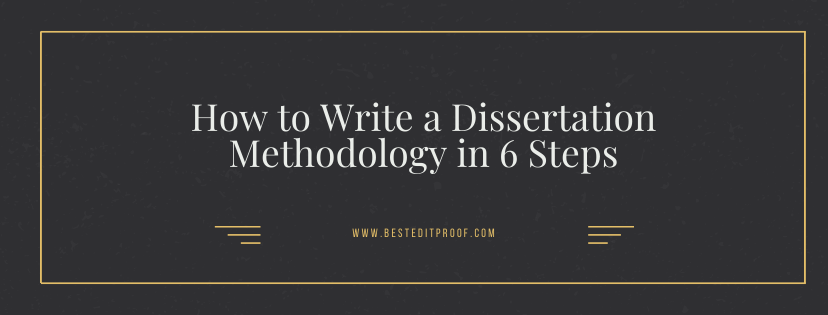
A methodology section explains the entire process of data collection and analysis based on logic and philosophy. This section is an unavoidable part of a dissertation or a research paper. Considering errors in the methodology section enervates the entire dissertation. Here, we bring you a general guide on the steps to compose a flawless methodology section for a dissertation.
Continue Reading
While composing a thesis or dissertation, a student must experience some predicted traps. Falling into these traps can affect one’s academic career. However, handling potential blunders and pitfalls wisely, while developing a thesis, can lead you to success. The process of writing may be frustrating but learning about the probable pitfalls may ease your stress. Here, we bring you the list of the most common mistakes we have noticed as a professional proofreading and editing service provider.
Continue Reading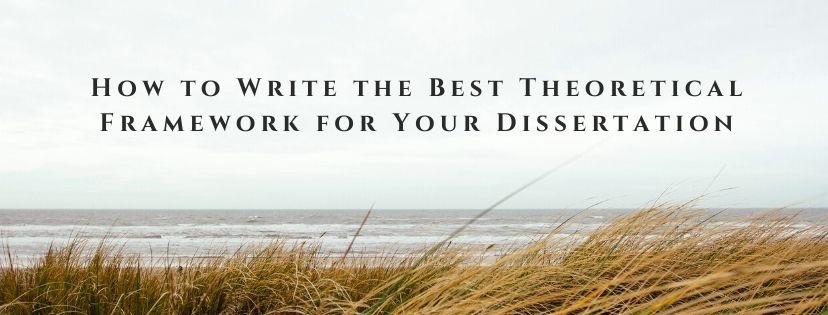
A theoretical framework primarily supports the idea of a research study. It bears all the theories that prove the essence and importance of any research. In a nutshell, it is developed to explain the research and comprehend its circumstances. It may involve all the theory-based logic behind the importance and existence of your research in academics. This step-by-step guide discusses how to build a theoretical framework for a dissertation.
Continue Reading
You have been working hard on your research paper and want to write an excellent dissertation/thesis. You have researched all the materials, and your data are perfect— all you need to do is put them together in a dissertation or thesis. But how do you manage that? While working on the research is not easy, it’s structuring a dissertation or thesis that the main issue lies with. Therefore, if you are struggling with structuring your dissertation or thesis, this article may be of help.
Continue Reading
Who decides the layout requirements for a dissertation? The answer is primarily clear, either your supervisor or department. Nonetheless, each program has a standard guideline determining page numbers and table of contents. Should you use MLA or APA citation style, you follow the MLA format guide or APA guide. Here are 10 useful tips for dissertation layout and formatting.
Continue Reading
Blog writing is an effective way to share your knowledge and ideas with your target group. Here you can dive deep and talk about your favorite topics, showcase your expertise and attract an audience or readers interested in your work. However, creating a perfect blog post can sometimes get overwhelming – from choosing the right topics to selecting the proper format for your articles to picking images that generate interest and engagement, it's no less than a task.
Continue Reading
Some essays use logical and factual data to sustain their claims. They are known as argumentative essays and form a significant proportion of all essays written by scholars and students during their academic tenure. This article demonstrates how to write an argumentative essay by dividing the writing process into four detailed steps. Hence, readers looking to augment the plausibility of their argumentative texts should ensure to abide by them.
Continue Reading
Research proposals are fundamental to any research endeavor. Therefore, every scholar contemplating research should know how to write a research proposal that can relay the intent behind a research project with utmost clarity and confidence. This article sheds light on the essential aspects of writing a research proposal that can bear the intended fruits. Also, it outlines the purpose of all the components of a research proposal and puts forward some holistic writing guidelines for the same.
Continue Reading
Some might say that the only difference between academic and business writing is the fact that the former is practiced by scholars while the latter by professionals. However, when perused closely, one can discern some stark as well as nuanced demarcation between the two. For individuals, such as college graduates, who need to occasionally shift between academic writing and business writing, knowing these differences can help them format their respective documents appropriately.
Continue Reading
Writing articles for journals requires scholars to possess exceptional writing skills and awareness of their subject matter. They need to write such that their manuscript relays its central idea explicitly to the readers. In addition, they need to abide by strict writing conventions and best practices to befit the parameters of journal articles. It is not uncommon for research initiates and, at times, even experts to struggle with the article writing process. This article aims to mitigate some apprehension associated with writing journal articles by enlisting and expounding upon some essential writing tips.
Continue Reading
Writing for academic purposes demands extreme finesse. It is not just the language that should be exemplary. Even the diction, the tone, and the context of the text should be on point. However, the path to achieving this finesse is a troublesome one. Many scholars, while treading this path, come across a myriad of academic writing problems that they find it too cumbersome to overcome. These problems can concern their language skills, research capabilities, or lack of awareness regarding their field of study. The purpose of this article is to address some of these recurring academic writing problems and suggest ways to deal with them.
Continue Reading
Writing a research paper involves scrutinizing a plethora of research material to bring forth plausible conclusions. However, no matter the degree of impeccability and thoroughness of the research, successfully transmuting it into words takes a grave amount of practice and endurance. Thus, it is not uncommon to see amateur and even veteran scholarly writers commit research writing mistakes in their papers now and then. Following the narrative, this article will describe 5 research writing mistakes that frequently blemish the works of academic writers. It will also shed some much-needed light on the tips to amend and avoid these mistakes.
Continue Reading
Track changes function in Microsoft Word 2021 for macOS is a very handy tool to track your revisions, corrections, changes, edits, and even suggestions and comments while you’re reviewing a document. When an editor or proofreader wants to return a revised document to a client with his/her all revisions visibly marked, and so clients can accept or reject, or the suggested changes appear in the margins of the returned document, he/she needs Track Changes function of Microsoft Word.
Continue Reading
Maintaining parallel structure prevents writers from making grammatically incorrect sentences and helps them to improve their writing styles. Although lack of parallelism is not always strictly incorrect, sentences with the parallel structure are easier to read and add a sense of balance to your academic writing. In this article, we will focus on what is parallel structure and how to use parallel structure in academic writing.
Continue Reading
Whether you are writing an essay for your publication or working on your research— academic writing style prevails for all types of academic work. It is not anything out of the world but does follow a few rules in terms of style and structure. If you are new to academic writing, the mention of 'rules' can be overwhelming. This article will help you with a few tips that help improve your academic writing.
Continue Reading
A narrative essay is, to an extent, an anomaly in academic writing. Unlike an expository essay, it does not dissuade academic writers from exercising their creative faculties. Nor does it require them to conduct extensive research and be strictly objective in their writing. However, narrative pieces still require academic writers to abide by the fundamental linguistic requirements of academic writing, such as excluding any instances of slang and other “informal” linguistic elements. This article expounds upon the atypical nature of a narrative essay and divulges the steps to write one.
Continue Reading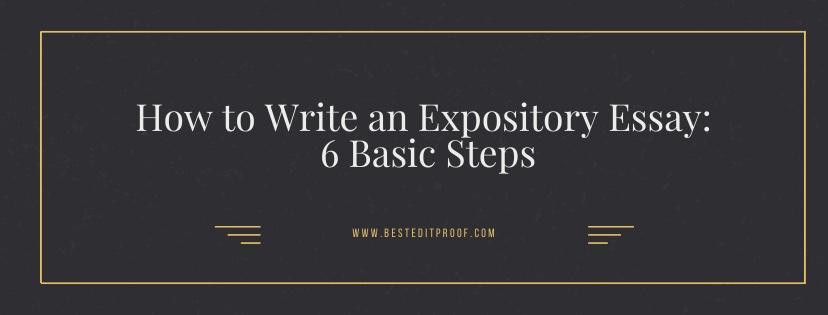
Essays are a principal component of academic writing. Scholars and students need to write a plethora of essays on a recurring basis as a core requirement of their research or curricula. Depending on the writing purpose, these essays can be persuasive, narrative, descriptive, or expository. This article expounds on expository essays and suggests some helpful steps to write an expository essay.
Continue Reading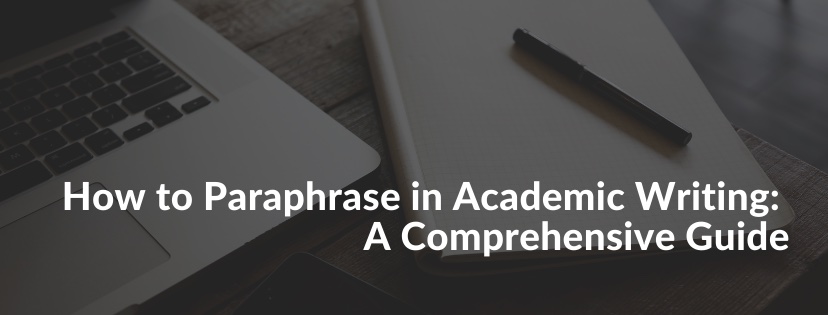
Paraphrasing is a regular exercise in academic writing. High school students, college students, and research scholars are required to paraphrase to demonstrate their understanding of a text. However, there are cases when, due to ineffective paraphrasing, instances of plagiarism dot an academic manuscript. Therefore, academic writers must correctly understand the fundamentals of academic paraphrasing and apply them to their writings to avoid any occurrence of any academic offense. This article will peruse the anatomy of academic paraphrasing. In addition, it will examine how paraphrasing is different from summarization and suggest ways to paraphrase effectively.
Continue Reading
Understanding the common types of plagiarism will help us to comprehend the scope of the question and answer the question of ‘‘what is plagiarism’’. Some common examples of plagiarism are copying texts or ideas without referencing, incorrect referencing, without referring to someone else's sentence structure even if you change words.
Continue Reading
According to the Office of Research Integrity (ORI), plagiarism is considered “both the theft or misappropriation of intellectual property and the substantial unattributed textual copying of another's work.” Since the consequences of plagiarism can be fatal, this article seeks to discuss 5 practical ways to avoid plagiarism in academic essays.
Continue Reading
After writing your manuscript, you may likely decide on an editor to perform the final checks on your document. Mostly, authors make the mistake of sending their manuscripts to their editors, without providing adequate information about specifications on the service they seek. With such limited information, your editor may produce an unsatisfactory job with limited information at his/her disposal. Thus, to ensure that your editors provide the best possible service, which will prevent journals from rejecting your manuscripts on the grounds of noncompliance to journal requirements, the following information should be provided beforehand.
Continue Reading
For academic achievement, staying ahead of the pack is always a crucial issue. Taking advantage of professional academic editing and proofreading can help you reach your potential and increase chances of your work being published in professional journals. It requires a broad-ranging comprehension to fix a document exceptionally. Therefore, academic editing and proofreading are a critical part of the writing process.
Continue Reading
The American Psychological Association (APA) introduced the 7th edition of the APA Publication Manual in October 2019. This edition replaced the previous one, the 6th edition of the manual. Since then, several things have changed. The latest edition also updated the formatting of digital object identifiers (DOI) in APA Style. This article addresses when to include DOIs and uniform resource locators (URLs) in APA Style references.
Continue Reading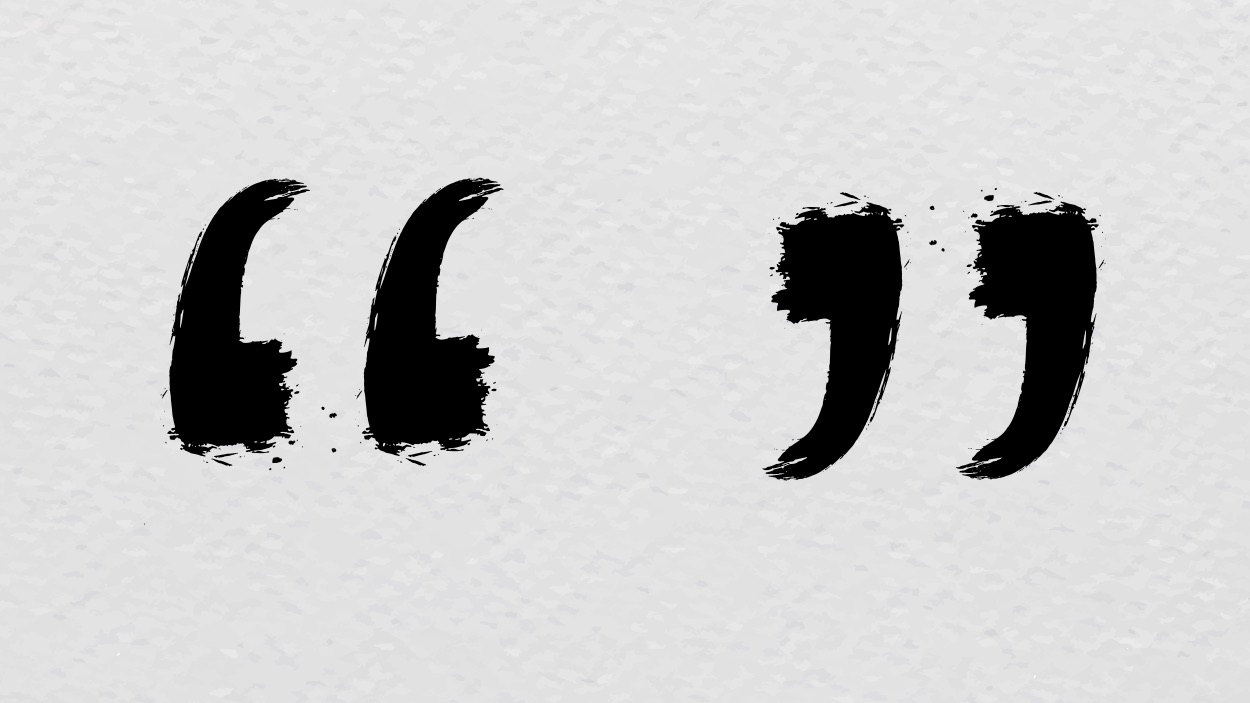
Whenever you use words, facts, ideas, or explanations from other works, those sources must be cited. Academic referencing is required when you have copied texts from an essay, an article, a book, or other sources verbatim, which is called quotation. You also need referencing when you use an idea or a fact from another work even if you haven’t used their exact expression.
Continue Reading
Writing for academic purposes entails writing literature that is formal in tone, objective, structure-wise complex and contains a fair amount of academic jargon. As such, there are certain words and phrases, collectively called taboo words, that academic writers omit when writing manuscripts. Academic writing encourages their elimination to maintain the “formality” of academic documents. This article discusses the definition of taboo words to avoid and examine their use cases.
Continue Reading
When writing for academic or professional purposes, such as writing a research paper or a professional email to the CEO of a firm, people use diction that is far more objective, complex, and meticulous than their everyday language. In other words, they use “formal” language or, to be precise, language that carries a “formal tone.” This article will peruse the definition of “formal tone,” albeit in the context of academic writing. In addition, it will give some helpful tips to aid writers in writing more formally.
Continue Reading
For every academic scholar, whether a high school student or a doctoral candidate, understanding the different types of academic writing and knowing when and how to implement them is crucial. Academic writing is broadly classified into 4 distinct categories: analytical, descriptive, persuasive, and critical writing. Each of these categories has certain defining features and different purposes; however, an academic document can feature the usage of more than one of these types in conjunction.
Continue Reading
If you are just starting with academic writing, you may feel overwhelmed by the pressure that academic writing usually imposes. However, as demanding as it may seem, you can easily master academic writing if you know the right rules to follow. This article particularly reaches out to beginners in academic writing to help you master this form of writing. Here, we will go through the basic language rules that apply to all kinds of academic writing (generally) and will help you master it in no time.
Continue Reading
This reference guide explains how to format your academic documents in Microsoft Word 2022, giving you the fundamental rules for formatting your academic papers as described in most guidelines, such as MLA and APA styles. The rules discussed in this guide apply to most of the academic papers you will submit as college assignments or articles for journals.
Continue Reading
Academic writing should be free of all errors and grammatical mistakes to ensure accuracy and professionalism. However, now and then, you come across an error while correcting your work that makes it all extremely difficult — dangling modifiers. What exactly are these, and how can you fix dangling modifiers so that your piece of academic work is perfect in all sense? Don’t worry, as we have the perfect guide to help you through it. In this article, we will cover how you can masterfully eliminate them.
Continue Reading
One of the major struggles that English speakers and writers suffer from is the different variants of American English and British English. Mistakes regarding these variants are very common that even experts get confused at times. Therefore, if you are struggling with these differences, don’t worry — you are not alone. Now, what you can do is gradually learn more about the two English variants. We assembled a comprehensive guide that highlights the basic differences between American and British English.
Continue Reading
Proofreading improves your writing, and it is a highly crucial step for a perfectly written academic paper. It necessitates a broad-ranging comprehension to fix a paper excellently and requires English proficiency to identify and correct errors. When you want to ensure that your paper is error-free in terms of grammar, punctuation, spelling, and formatting, you need a proofreading service.
Continue Reading
As a college student in the USA, the UK, Canada, or anywhere else, you may have a wealth of opportunities for freelance work due to your connections. Freelancing can be an excellent way to create an income stream and expand your writing portfolio. Take early advantage of your education while you're still in school and start a freelancing career. This handout provides an easy guide for freelance opportunities for college students.
Continue Reading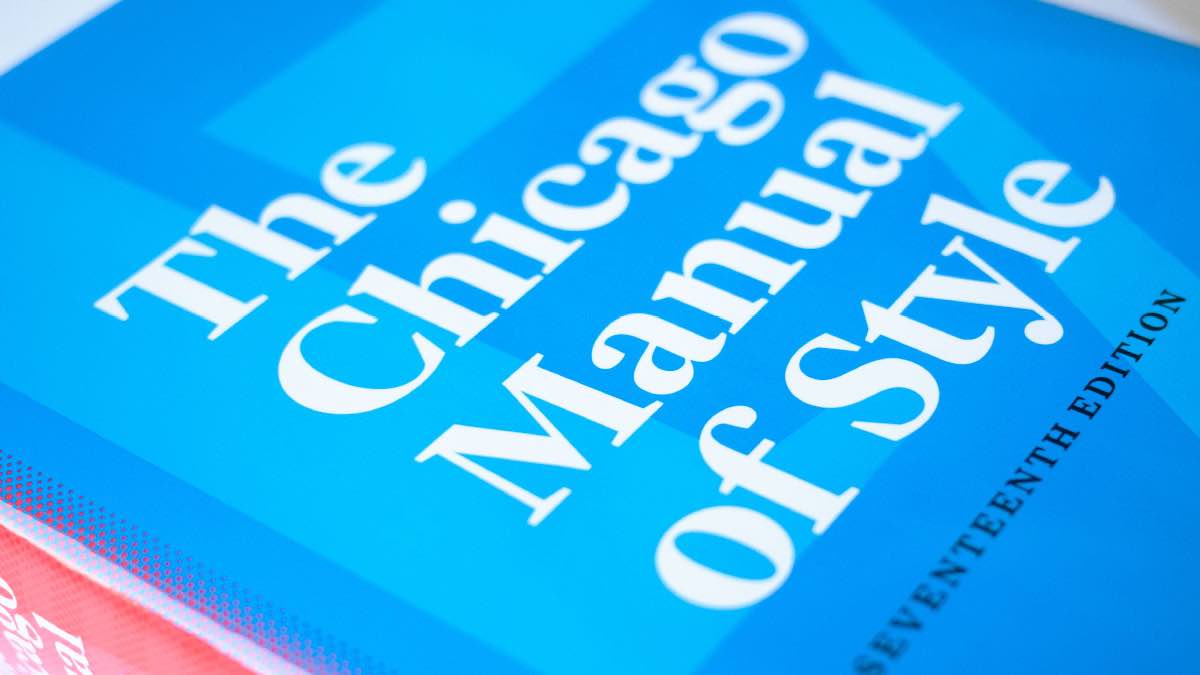
When you enter the academic field or just begin writing a thesis, a dissertation, or an article for e peer-review journal, you will fumble upon countless new writing styles, fonts, formats, and citation styles. Academic writing differs from other forms of writing because it often follows a set of structures and involves the use of formal language, grammar, and words. Thus, you need to write in a particular style that carries its own rules and regulations. This article discusses the details and main rules of the Chicago Style Citation.
Continue Reading
Academic writing is the type of writing style that requires a lot of attention to details, rules, and regulations. Mainly used for, as you might have guessed, academic purposes, it is one of the most common writing styles for professional works. However, as regulated and strict it is, it is also easier to make mistakes here. One such very common mistake that happens all the time for several researchers is sentence structuring. Sentence structuring has always been a little tricky, academic writing or not. That is why a great emphasis is made on them during the editing and proofreading phases. This article discusses the most common sentence structuring mistakes and how you can avoid them.
Continue Reading
Academic writing is an intricate task. Add to this the troublesome misconception surrounding it and things seem much more unwelcoming than they already are. Almost every high-school student, college student, and/or research scholar has come across and maybe fallen for certain writing myths and burdened themselves with unneeded knowledge. In this article, we will look at 6 common myths that you should avoid in academic writing.
Continue Reading
Writing research articles might be tough. However, publishing articles in peer-reviewed journals is even tougher. Writing research articles for academic journals is as difficult as it is competitive. It’s not just about writing a research paper extensively. Arranging and condensing the content to appeal to the reviewers’ interests is also crucial. Skip on it, and there are high chances no editor will pay your article any attention, let alone forward it for publication. In this guide, you will learn how to heighten the probability of publishing your articles.
Continue Reading
Academic writing is one of the most systematic writing formats to exist. This type of writing requires you to have precise knowledge about writing formats, style guides and still has additional rules to follow, depending on your type of work. Though it is not something otherworldly and is very much attainable through practice, it can still be a chaotic mess for beginners. A good way to improve yourself is to familiarize yourself with the language rules. In this article, we will take a look at the most important language rules that you must know of and exercise eventually.
Continue Reading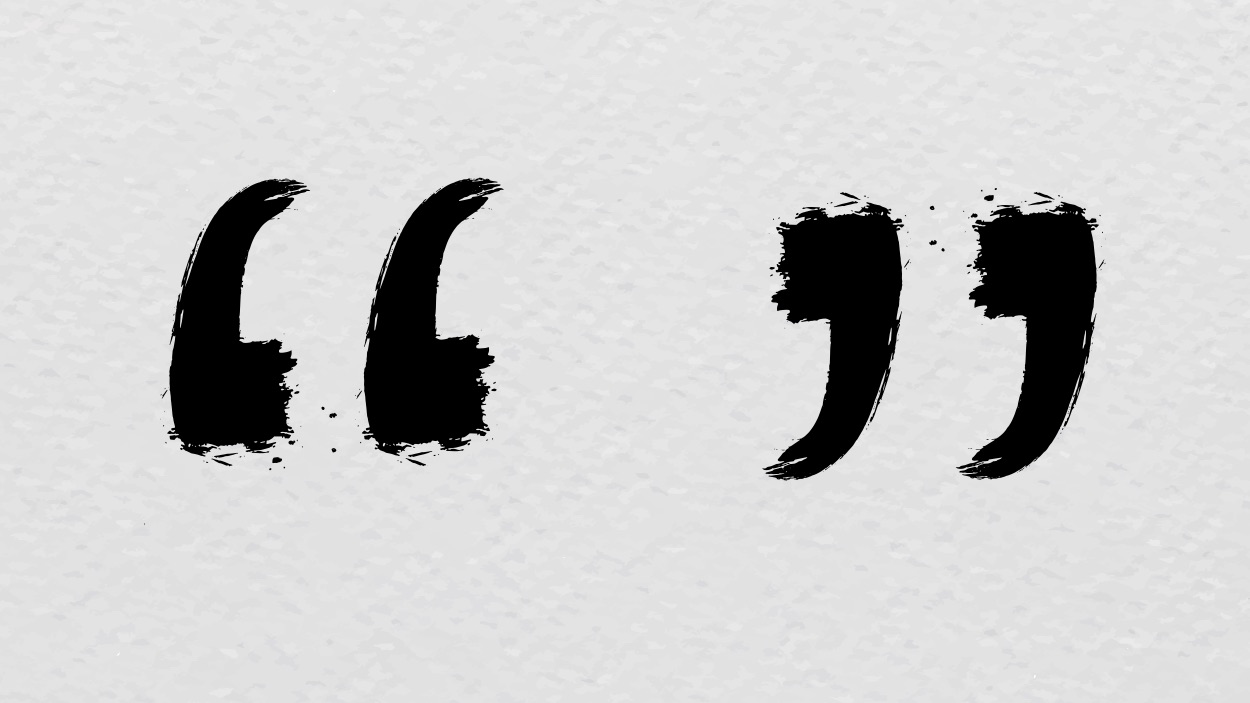
One of the main things that any editor or proofreader looks out for while editing a piece of text is punctuation marks. The reason is simple — they can alter the meaning of your text if you do not use them correctly. It becomes even more prominent when you are writing an academic paper. In academic writing, an author may be easily misunderstood when ambiguous sentences are used. Punctuation marks mainly serve the purpose to disambiguate sentences. While literary or other types of writing will have a certain degree of freedom for using punctuation marks, academic work needs to be precise and correct. This article will cover the importance of punctuation marks in academic writing.
Continue Reading
Writing assignments is not like any other homework you’ve ever done or will do in your academic life. Writing assignments demands unrestrained dedication and plenty of willpower. You cannot just open a book and copy-paste its contents with some rephrasing. To write a better assignment, you need to work hard, you need to research, plan, draft, and edit carefully. Writing an assignment paper is one thing and writing an impactful assignment paper that instills a positive impression of you in your professor’s books and elicits good grades out of him/her is another one. The following tips will help you write a perfect assignment paper.
Continue Reading
As a student or anyone in the academic field, you need to know about your text even before you start writing it. In academic writing, there are so many rules, regulations, styles, and guides that you need to follow. Naturally, to write a good piece of work, you need to make sure that you know about what you are writing. Similarly, it is important to know about the different types of academic writing before you get started on it. This guide discusses the various types of scholarly writing.
Continue Reading
There are various types of research designs that researchers can opt for. However, to opt for the right design, you first need to know the differences. Also, do not forget that the type of design depends on various variables from your research. Therefore, understanding these variables is of importance. If you are new to academic work or are just here to refresh your memory, this article has just the right content for you. Today, we will focus on the different types of research designs.
Continue Reading
What is academic writing? In simplest words, academic writing is a style of writing used in the academic field and adopted by academic institutions or scholarly publications. You might encounter academic writing in peer-review journals, books, articles, and you are expected to write your manuscripts, dissertations, essays, or thesis in the academic style. Academics and students use this style to convey complex ideas and theories clearly and precisely to their readers. Therefore, as a student, especially for the ones getting higher education, it is needed for you to learn this way of writing and adopt it.
Continue Reading
Being proficient in grammar takes years of practice and needs deep knowledge. Yet, you will still end up making grammatical mistakes, and that is understandable. However, when we are talking about academic writing, you need to be exceptionally careful that you do not end up making such mistakes. This article gives you 10 common grammatical mistakes in academic writing. If you are someone who tends to make such mistakes frequently, this article will be able to help you pinpoint those mistakes and fix them.
Continue Reading
Imagine a text written without the periods, commas, and colons. It would certainly be difficult to read. In academic writing, an author may be easily misunderstood when ambiguous sentences are used. Inasmuch as the essence of punctuation marks in writing, especially academic essays, cannot be overemphasized, the appropriate use of these punctuation marks is even more critical.
Continue Reading
Discussion chapter of a PhD thesis focuses on explaining and analyzing what you have researched, presenting how it is associated with the existing literature. It is also a place for argument supporting your entire discussion. We often find that people seek thesis writing help from experienced editing and proofreading services to prepare a flawless PhD discussion chapter. However, following 9 essential tips can help you design a perfect PhD thesis with an excellent discussion chapter.
Continue Reading
Whether you are new to academics or have been around for a while, you must understand that research is a critical segment of the academic field. Therefore, it is essential to know the WHATs, WHYs, and HOWs of it. Pertaining to that, this article discusses different types of research methods that you will come across. Namely, they are — quantitative research and qualitative research. Here, we will learn what these types of research are, how they are different, and when they are used. This will be especially helpful for researchers and students who are just starting with their research.
Continue Reading
Being a proofreading and editing service provider, we often find researchers making common citation mistakes in their research papers. Well, making mistakes is normal, but repeating the same mistakes is not accepted. Recognizing the gravity of the situation, we here bring the list of common errors students and researchers make while citing sources.
Continue Reading
Starting an academic study can be an overwhelming task. After all, it is a very systematic way of studying and involves many procedures and methods that you cannot skip or go around. One of the most prominent parts of research is the research methods that you adopt to get your results.
Continue Reading
Academic and research works are tenacious studies that include specifics. Therefore, you will come across various terms and phrases that you need to keep in mind while working around. Naturally, it can get overwhelming. However, once you understand the concept, the overall process becomes very easy to work with. This article will focus on dependent and independent variables and discuss what they are, how to determine dependent and independent variables and their uses in academic writing.
Continue Reading
Whether it is an academic essay or any other thesis paper, all the papers are directly or indirectly associated with one’s future. Therefore, making mistakes here means compromising with the future. However, students are fond of making some habitual errors while composing an academic paper. Let’s learn those mistakes and make sure not to repeat them in your turn.
Continue Reading
A good part of any research depends on the right questions asked. If you are asking wrong questions, your entire research may go off track. Therefore, understanding what questions you need to ask is essential for your research. If you are on the way to your research but don’t know how to start framing the right research questions, we have just the right information for you. This article discusses the process of formulating research questions.
Continue Reading
For writers starting, paraphrasing might seem quite a difficult thing to master. However, everything can become better with practice and some good advice. Therefore, if you are getting into the world of academic writing and want to know how to paraphrase like a pro, we have a few tips that you might find helpful. This article discusses the basic steps of successful paraphrasing.
Continue Reading
Writing and publishing a scientific research paper require more than just bookish knowledge. Every year, thousands of scientists and researchers strive to publish their research papers in suitable journals, but many of them fail without following proper guidelines. In this quick guide, intended for graduate students and other young scholars, we identify 7 common pitfalls and offer helpful solutions to prepare more impactful papers.
Continue Reading
Writing an academic paper is not similar to other forms of writing. It requires patience, knowledge, and the use of proper sentence construction. An academic paper should be informative, polished, and well structured. As a student or researcher, you should learn about bad habits and not repeat them in your academic writing. In this article, we discuss 6 bad habits to avoid in academic writing.
Continue Reading
Online databases involve scholarly and reviewed articles penned by highly qualified authors such as researchers, journalists, or experts in their field. In this article, you will find 10 free online databases for researchers. They offer intense search tools to narrow the results so that any student can easily collect the required information.
Continue Reading
Although the rules of English capitalization seem simple at first glance, it might still be complicated in academic writing. You probably know you should capitalize proper nouns and the first word of every sentence. However, in some cases, capitalization is required for the first word in a quotation and the first word after a colon. In this article, you will find 15 basic capitalization rules for English grammer.
Continue Reading
In the case your work has been reviewed and has received feedback from your peer experts, there needs to be a proper response to reviewers. A response to the reviewers does not necessarily mean that you need to disagree, argue, or prove the reviewers wrong. With a response, you are trying to be dynamic and convincing enough to let your reviewers know that you have indeed made the perfect changes to your work. A response, therefore, is about making a good impression on the reviewers.
Continue Reading
Submitting a journal article can be a nerve-wracking experience. After all, this piece of work requires hours of research, analysis, and work poured into it. Therefore, you would wish for it to be acknowledged, selected, and published. This guide will give you some crucial answers, so go ahead and take a read. This way, you can ensure that your journal submission is devoid of any hassle.
Continue Reading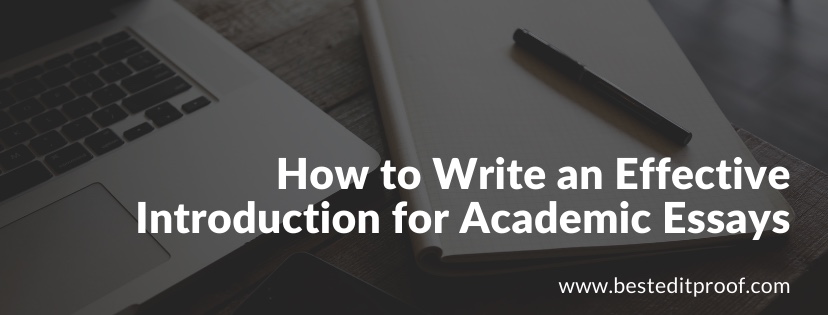
Writing an impactful introduction is more than just following the rules. If you search on the Internet, you may find stereotypical rules and regulations. However, it is important to understand that the author’s creative sense and ability to comprehend the topic helps in executing an effective introduction. This article discusses the major elements of writing an introduction and how you can write an impactful introduction.
Continue Reading
The successful manuscript submission can benefit in accelerating quick publication, the promulgation of your findings, and avoiding the chances of scooping. Plus, it provides a quicker return for you to start working on your next study. This article will guide you through 11 tips for successful manuscript submission.
Continue Reading
Research databases are the foundation of any dissertation or research paper. Scanning through previous findings and research is a key factor while compiling your research proposal or a thesis. Here we discuss the top 5 free online journal and research databases for academics.
Continue Reading
Research takes a crucial role in developing an outstanding academic paper. Ensuring credible research sets the foundation of an academic paper is essential for researchers to obtain the acceptability of the paper. This article discusses four practices that make students better at researching.
Continue Reading
Some students find it difficult to understand and write error-free coursework papers. So, it requires pouring multiple skills, attention, and energy to frame impressive coursework. Here we present few such tips for flawless coursework.
Continue Reading
Preparing a research paper is the most painstaking and challenging task for many individuals. However, with rigorous practice, it would be much hassle-free for you to sum up entirely. Are you thinking of the best ways to write an impactful research paper? We are here to help you! We present an easy-to-follow rubric that will help you draft an impeccable research paper.
Continue Reading
Academic writing is a particular type of nonfiction writing, which is used in various academic works, such as reports of university research, proposals of new theories by the researchers, or papers released by scholars analyzing the culture of their fields. This article provides nine practical tips for academic writing that a writer must remember to improve his/her writing style.
Continue Reading
The writer is expected to be very selective with the style and approach of writing custom-made. Here in this article, the primary and essential elements to be taken under consideration while developing engaging content will be illustrated. This article discusses 9 basic principles for effective content writing.
Continue Reading
After a concise overture of the concerned discipline in the introductory section of a research paper or dissertation, the literature review should begin by delineating the significance of and the most critical works in that discipline. This handout provides six easy-to-follow steps for an impeccable literature review.
Continue Reading
In drafting a manuscript, thesis, or dissertation, the discussion section is usually one of the last to be written. Notwithstanding, it is arguably the most important section in a manuscript. Due to its relevance, it is usually the most challenging to write, as it requires top-level expertise. This article seeks to lay bare 5 helpful considerations to make when writing a sound discussion section.
Continue Reading
Academic essay writing is an essential part of college life since writing essays is one of the most common assignments in colleges or universities. Some claim that it is an easy job while others assert it is very challenging. International students, particularly, find the task very compelling. No doubt it is a challenging issue because one has to devote considerable time to studying, reading, and examining the evidence. That requires self-sacrifice to learn how to write an academic essay. Although it seems challenging at first, it will get easier with practice and by following the steps detailed in this article.
Continue Reading
Writing academic essays is required for the successful completion of college, graduate school, and advanced research studies. Essay writing, as required in academia, requires much more preparation, effort, and skill than most students and academics actually do put in.
Continue Reading
Embarking on an academic work is obligatory for every college student who wants to graduate one day. Such an academic work is considered one of the final and most fundamental practices in the curriculum for college students. Some students who embark on their academic writing projects may not actually be aware of the mistakes (whether trivial or vital) that may delay their graduation or cause them to lose marks, or points in their assignments. So, college students should pay attention to these tips to avoid making the errors herein discussed.
Continue Reading